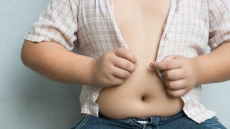Parents with only child are more likely to tackle an obese kid as children without siblings may be at a higher risk of gaining weight than those who have brothers and sisters, say researchers.
This is because families with multiple children tend to make more healthy eating decisions than families with a single child, the study added.
The study, published in the Journal of Nutrition Education and Behavior, found that this kind of obesity could be seven times more common among youngsters.
"Healthier eating behaviours and patterns may result from household-level changes rather than peer exposure, as peer exposure is also present in away-from-home care," said study lead author Chelsea L. Kracht from the University of Oklahoma in the US.
According to the researchers, data was self-reported in daily food logs kept by mothers over the course of three days -- two weekdays and one weekend day. Teachers kept logs by proxy for any food children ate while at school.
Mothers also completed the Family Nutrition and Physical Activity questionnaire to evaluate typical family eating behaviour like food and beverage choice.
Researchers have found that only-children, who researchers refer to as 'singletons,' had less healthy family eating practices, beverage choices, and total Healthy Eating Index 2010 score, coming in lower on three out of the 12 areas measured.
They also had significantly lower total scores across weekdays, weekends, and on average, indicating there are both individual and collective differences in eating patterns between the groups.
Researchers found mothers of singleton children were more likely to be obese themselves. Moreover, maternal BMI had a much stronger connection to child BMI percentile and waist circumference percentile than singleton status.
Maternal BMI did not significantly contribute to overall eating patterns but did contribute to empty calories.
The research also found that time spent in away-from-home care like school and daycare was not connected to children's eating patterns.
"Nutrition professionals must consider the influence of family and siblings to provide appropriate and tailored nutrition education for families of young children," said Kracht.
"Efforts to help all children and families establish healthy eating habits and practices must be encouraged," Kracht added.


